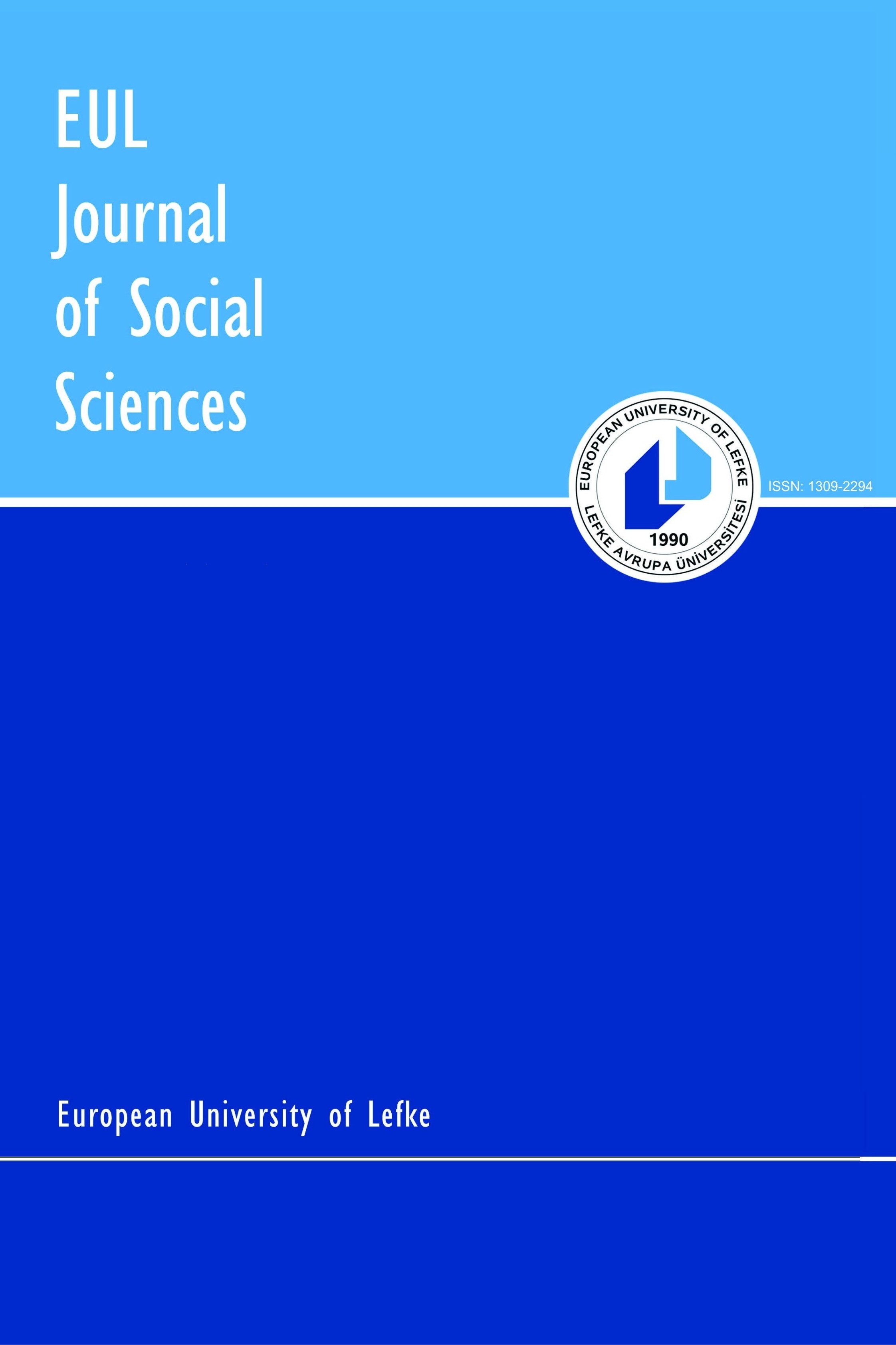The Study of Individual Action and The Pillars of The Austrian School of Economics
Uzun ömrüne, iktisat bilimine yapmış olduğu çok sayıdaki katkılarına ve hakiki özgünlüğüne rağmen Avusturya İktisat Okulu, her ne kadar hor görülmese de, hala yeterince bilinmemekte ve önemsenmemektedir. Oysaki Avusturya iktisat geleneği, oldukça canlı ve faaldir, dahası, entelektüel kökenleriyle hala tutarlıdır. Bunun başlıca nedeni insan davranışlarını araştırmada kullandığı sağlam ve iyi işleyen metodolojisinde yatmaktadır. Bu makale Avusturya okulunun analizlerinin dayandığı metodolojik temelleri kısaca sunma amacını taşımaktadır. Söz konusu metodolojik esasları eleştirel bir biçimde tartışma değil daha çok bir yaygınlaştırma ve tanıtma girişimi olarak değerlendirilmelidir
Anahtar Kelimeler:
Avusturya İktisat Okulu, epistemoloji, metodoloji, praksoloji, belirsizlik
___
- Bergson, H. ([1896] 1929), Matter and Memory (transl. by N.M. Paul and W.S. Palme), 5 th
- ed., George Allen & Unwin, London.
- Boettke, P.J. (2002), “Information and Knowledge: Austrian Economics in Search of its Uniqueness”, The Review of Austrian Economics, 15/4, 263-274.
- Centi, J.-P. (1999), “Money and Credit in an Open-Ended Universe”, Journal des Economistes et des Etudes Humaines, 9/2-3, 293-320.
- Fisher, I. (1918), “Is ‘Utility’ the Most Suitable Term for the Concept It Is Used to Denote ?”, American Economic Review, 8/2, 335-337.
- Hayek, F.A. (1944), The Road to Serfdom, Routledge, London.
- Hayek, F.A. (1945), “The Use of Knowledge in Society”, American Economic Review, 35/4, 519-530.
- Hayek, F.A. (1976), Law, Legislation and Liberty: A New Statement of the Liberal Principle of Justice and Political Economy. Vol. 2. The Mirage of Social Justice, Routledge and Kegan Paul, London.
- Kirzner, I.M. (1988), “Advertising in an Open-ended Universe”, foreword to Ekelund, R. and Saurman, D. (eds.), Advertising and the Market Process, Pacific Institute, San Francisco, xv-xxii.
- Knight, F.H. (1921), Risk, Uncertainty and Profit, Hart, Schaffner & Marx and Houghton Mifflin, Boston.
- Lachmann, L.M. von (1959), “Professor Shackle on the Economic Significance of Time”, Metroeconomica, 11/1-2, 64-73.
- Lachmann, L.M. von (1977), Capital, Expectations and the Market Process: Essays on the Theory of the Market Economy, Sheed Anderson and McMeel, Kansas City.
- Lachmann, L.M. von (1986), The Market as an Economic Process, Blackwell, Oxford.
- Littlechild, S.C. ([1977] 1990), “Change rules, OK?”, Inaugural Lecture delivered in the University of Birmingham, May 28, 1977 and reprinted in Littlechild, S.C., Austrian Economics. Vol. 1, Edward Elgar, Brookfield, 150-172.
- Marshall, A. ([1890] 1920), Principles of Economics: An Introductory Volume, 8th ed., Macmillan, London.
- Menger, C. ([1871] 1976), Principles of Economics (transl. by J. Dingwall and B.F. Hoselitz, with an introduction by F. A. von Hayek), NewYork University Press, New York.
- Mises, L. von (1944), “The Treatment of ‘Irrationality’ in Social Sciences”, Philosophy and Phenomenological Research, 4/4, 527-546.
- Mises, L. von ([1949] 1996), Human Action. A Treatise on Economics, 4th ed., Fox & Wilkes, San Francisco, 1996.
- Popper, K.R. (1957), The Poverty of Historicism, Routledge, London.
- Shackle, G.L.S. (1958), Time in Economics, North-Holland, Amsterdam.
- Simiand, F. ([1935] 2006), Critique sociologique de l'économie (Marcel, J.-C. and Steiner, P., eds.) P.U.F., Paris.
- White, H. (1992), Identity and Control: A Structural Theory of Social Action, Princeton University Press, Princeton.
- Wicksell, K. ([1898] 1962), Interest and Prices: A Study of the Causes Regulating the Value of Money (transl. by R.F. Kahn), Sentry Press, New York.
- Wieser, F. von ([1889] 1893), Natural Value (transl. by C.A. Malloch), Macmillan, London.
- Momtchil Karpouzanov holds a PhD in Economics from the Centre of Economic Analysis at the University Paul Cezanne Aix-Marseille III. He is currently a member of the Banking and Finance Department of the Faculty of Economics and Administrative Sciences at the European University of Lefke. His main areas of research are political economy, monetary economics, Austrian School of Economic Thought and corruption.
- Momtchil Karpouzanov doktora eğitimini ekonomi alanında Paul Cezanne Aix- Marseille III Üniversitesi, Ekonomik Analiz Merkezinde tamamladı. Halen Lefke Avrupa Üniversitesi, İktisadi ve İdari Bilimler Fakültesi Banka ve Finans Bölümü öğretim üyesidir. Araştırma alanları içerisinde politik ekonomi, parasal iktisat, Avusturya İktisadi Düşünce Okulu ve yolsuzluk konuları yer almaktadır.
- ISSN: 1309-2294
- Yayın Aralığı: Yılda 2 Sayı
- Başlangıç: 2010
- Yayıncı: Lefke Avrupa Üniversitesi
Sayıdaki Diğer Makaleler
The Effects of Pre-Reading Activities in Efl Classes on Students' Reading Comprehension
Kıbrıs Sorunu Paradoksunda Görsel Kültür Ortaklığı ve İki Toplum
Osmanlı'da Batı Dillerine Ait Sözlükler
Salih KATIRCIOĞLU, Elif KATIRCIOĞLU
The Study of Individual Action and The Pillars of The Austrian School of Economics
